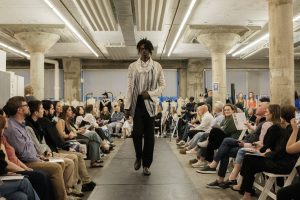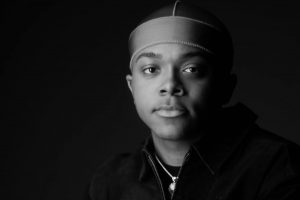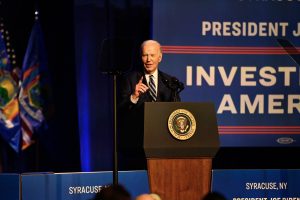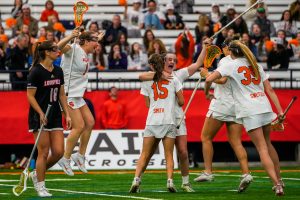Panelists discuss institutional police violence against communities of color
Panelists discuss institutional police violence against people of color
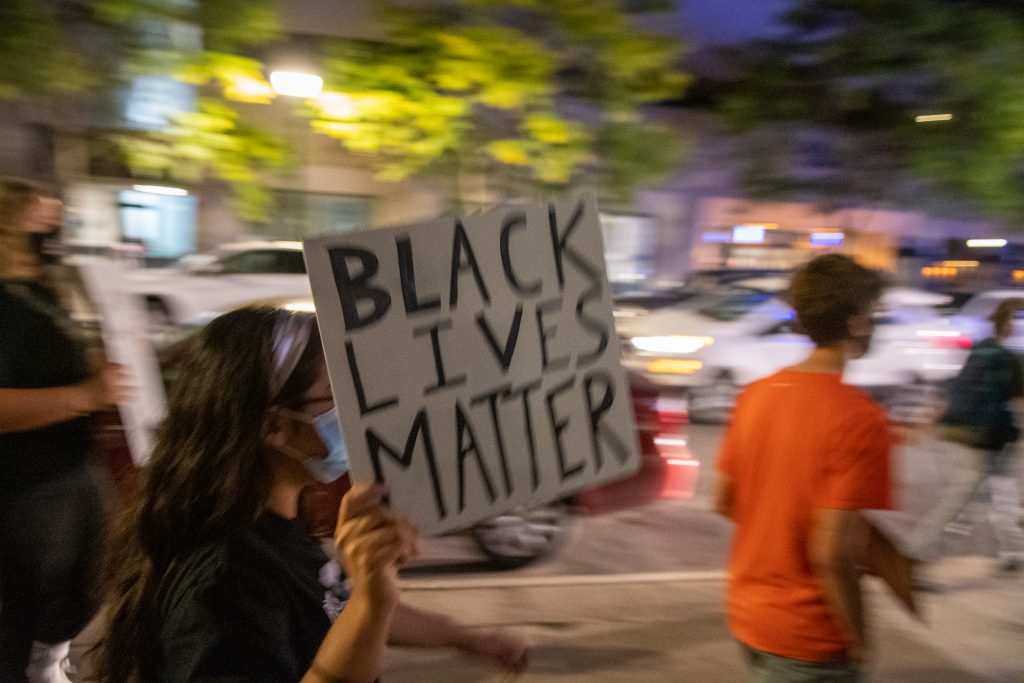
Before the panelists began their discussion about policing and reform strategies in Black and Brown communities, Yusuf Abdul-Qadir outlined the conversation’s framing.
The discussion would be radical — but only because what’s now accepted as normal is far from what it should be. The panelists would push those in attendance, and they would continue to do so because it’s crucial. The conversation would focus on policing as an institution, not a system of individuals and bad actors.
“We are having a conversation about policing as an institution that is centered and rooted in the preservation of white supremacy, and to be explicit, white, heteronormative, male-dominant, Christian supremacy, ableist supremacy,” Abdul-Qadir said.
Abdul-Qadir, the lead organizer for the Syracuse Police Accountability and Reform Coalition and a product policy manager at Facebook, moderated a discussion Friday afternoon that was held as part of Syracuse University’s “Policed Bodies: A Community Conversation on Race, Disability and Justice.” The two-day event, which began Friday, includes panels, group conversations and a keynote address from Monique Morris, an award-winning author and social justice scholar.
The panel on policing and reform strategies featured Ashley Gantt, a political strategist and civil rights organizer at the New York Civil Liberties Union; Brandon Anderson, founder of Raheem, an independent service for reporting police violence; and Talina Jones, chair of the New York State Early Intervention Coordinating Council.
Gantt is involved in grassroots organizing in Rochester as a co-founder of Free The People Roc, which has worked to demand justice for Daniel Prude. Rochester police officers killed Prude, a Black man, while he experienced a mental health crisis in 2020, sparking a series of protests.
“Every week (in Rochester), something has happened with police and the violence against Black and Brown bodies,” Gantt said. “While we are exhausted, not just by what is happening around the country but specifically the things that are happening here, Black and Brown folks literally feel like we are in a war with the police.”
Abdul-Qadir asked the speakers how people can make sense of police officers killing Black community members “by accident,” as well as individuals excusing acts of terror carried out by white men as the perpetrators having a “bad day.”
“Daniel Prude was experiencing a mental health crisis and was not just humiliated, demeaned, dehumanized, but was killed. Why are white bodies able to walk away and go through the process and Black bodies are not?” Abdul-Qadir said.
There is no way to understand it, Gantt said — it’s racism, white supremacy and implicit bias, and people must call it that. Instead of making sense of police violence, the focus should be on finding ways to support community members and change the system, she said.
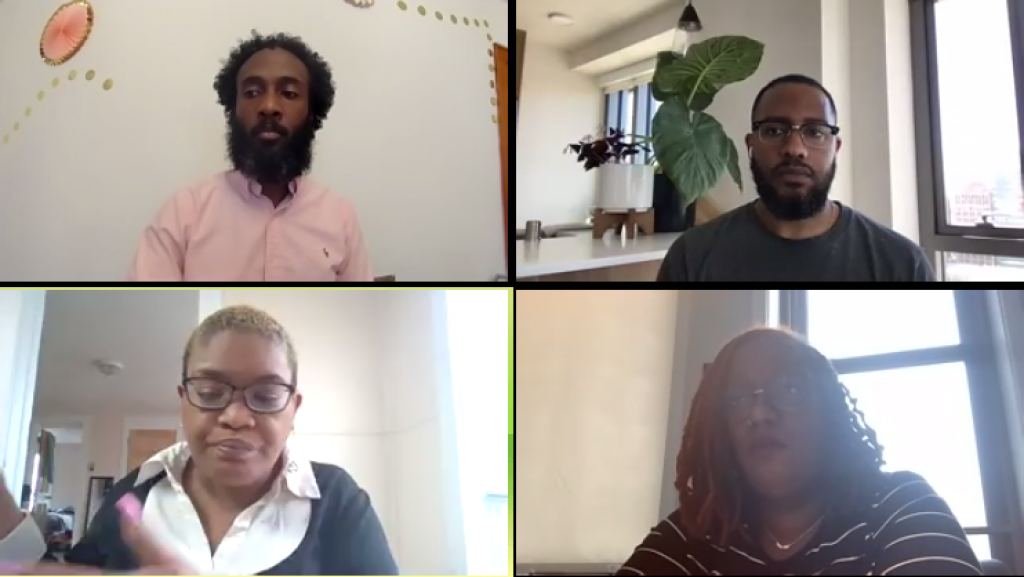
Defunding and abolishing the police — with the former leading to the latter — can be scary for some to hear, but for Black people and community members of color, police are terrifying, Gantt said. People must continue to hold elected officials and institutions that maintain oppression accountable and do whatever is necessary to ensure policy changes, she said.
“And when I say whatever we have to do, I mean protesting, I mean writing op-eds, I mean taking these seats and running for office, whatever we have to do to make sure that when my brother walks out of the house, or my boyfriend walks out of the house, I don’t have to continually live in a state of being terrorized and fearful,” Gantt said.
Jones, who advocates for people who have children with disabilities, has a teenage son with Down syndrome. Abdul-Qadir asked Jones how the notion of compliance as a means of preventing police violence is ableist and puts the responsibility on community members to protect their lives during police encounters.
The notion will always be ableist, as there are many factors behind why someone may not comply with police, Jones said. They could be experiencing a mental health crisis, or they may be unable to communicate with an officer or interpret what the officer is saying.
“When we talk about being ableist, it’s this notion that, ‘Have you ever thought that I didn’t hear you? How do you handcuff me and I use sign language?’” Jones said. “Or literally my physical body. You’re telling me to get out of the car, and I might be able to drive, but I might also have cerebral palsy and I can’t actually get out of the car.”
Abdul-Qadir asked Anderson how incidents of police violence keep happening and how people continue to justify these acts. A police officer killed Anderson’s life partner during a routine traffic stop in 2007, which led Anderson to found Raheem.
Black people can’t comply with police, as the notion of compliance was created because of the existence, identity and subjugation of Black people, Anderson said. He also echoed that it’s impossible to make sense of police violence.
“Sometimes, just saying that it doesn’t make sense is essential for people to understand how absurdly ridiculous it is to even have that inquiry,” Abdul-Qadir said.
Abdul-Qadir also gave each speaker time to share what defunding the police means to them, as it has been intentionally misinterpreted and seen as both a hashtag and a joke, he said.
People in Rochester are calling for some of the Rochester Police Department’s resources to be allocated to areas that are lacking funding, such as education, activities and housing, Gantt said. Instead of criminalizing low-income people, resources should be reallocated to solve poverty, she said.
Though the goal is the abolition of police, defunding has to come first, she said.
“If I walk out of my apartment right now, I’m going to at least see five police officers. We want the same chance, the same access to opportunities, the same benefit of the doubt as our white counterparts are getting,” she said.
Police are trained to use force in response to conflict, and the presence and use of police is the use of force, Anderson said. Negotiating conflict through police is ineffective, as it teaches people and institutions to use violence to address conflict at the interpersonal, communal and systemic level, he said.
“I think that, if you’re asking the question about who needs to be making decisions about what is the solution and what we should be doing, we should be listening to the people who are in closest, in deepest need of healing, and those are these communities,” Anderson said.
For the last question, Abdul-Qadir asked Jones what public safety looks like without police.
Black and Brown communities often don’t have the time to discuss ways to reimagine life, Jones said. People would have to determine what a response to domestic violence would look like without police, for example, but community members of color don’t always have the chance to answer such questions because they’re facing death, violence and systemic oppression, she said.
“If you’re listening to what we’re saying, then you can take that into your own spaces, and when you get questioned about certain things, then you can think about these other kinds of questions,” Jones said. “If we’re not always at the table, these kinds of conversations are that much more important because then you can bring it back to the tables you sit at.”
What people do for those who are most marginalized often creates systemic change that affects everyone, Jones said. If community members think about defunding the police, what those funds should be reallocated toward and whose voices should be included, it becomes a conversation on policy, not just an ask, she said.
Gantt believes that people were in attendance for a purpose, and having heard the discussion, they’re now responsible for taking action. She spoke of the importance of Daniel’s Law, named after Prude, which New York State Sen. Samra Brouk introduced in February. The legislation would enable mental health professionals to respond to mental health and substance use crises.
“The people closest to the problems are the people with the solutions. That is going to always be the answer,” Gantt said. “When we talk about what community policing looks like or what we think an alternative looks like, we have to ask the people that are most directly impacted by police violence. We cannot ask the powers that be.”

